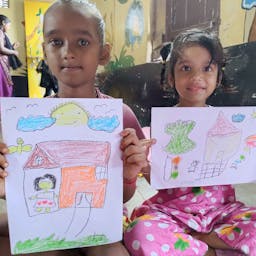DOMESTIC VIOLENCE
Jan 21, 2015
Story
PUNE: The nature of Domestic Violence Act (DVA) of 2005, awareness about the role played by protection officers and counsellors at the family court and understanding important cases were some of the topics of discussion on the concluding day of the Women's Vigilance Committee conference at the Centre for Police Research (CPR) on Wednesday.
Compared to Sec: 498 (a) of the Indian Penal Code (IPC), the DVA is a civil law that gives aggrieved women their rights and practical remedies in terms of protection order, a home, monetary relief, temporary custody and compensation, among other benefits, said family court lawyer Rama Sarode. "Sec: 498 (a) criminalises the family as an institution, but DVA aims at safeguarding the family system while also providing much relief to female victims of domestic abuse. DVA needs to be interpreted with much rationality and open-mindedness.
The fact is that most men think the DVA is against them, which is not so. This act is against violence. Point is does the troubled woman have the power, support and negotiating abilities to stop the violence meted out on her? We need to change our perspective towards this Act.
We always talk about the misuse of law; why not talk about its proper use. The spirit and objective of this law needs to be understood," she said.
Sadly, most women are not aware of the benefits of this law, says Sarode.
She handles around 15 cases of domestic violence on a weekly basis. "In our society, people are not trained to deal with marriages via pre-marital counselling. Forced marriage, inconsideration towards a woman's education and career and other issues women face need to be tackled properly, first," she added.
The role of the police in this process is equally important. "People are not aware of protection officers. The police, too, needs to be aware of the DVA, because this law has better options as compared to Sec:498 (a) of IPC. Next is to connect the aggrieved woman to the legal aid committee, lawyers, protection officers and counsellors. Timely interaction and a coordinated effort from all these sources is very important," Sarode added.
The conference is aimed at sensitising the police on the same. "Domestic violence is a concept which even the police often finds difficult to understand and interpret. The police do not understand their role here and how it can coordinate with the WVC. This is where this conference can help us," said police inspector (crime) Smita Jadhav.
The judiciary's inability to correctly interpret the nature of violence or harassment faced by a woman is also a lacuna, said human rights and Family Court lawyer Asim Sarode. "Very often, judges concerned do not understand the application of DVA. Most of them are not aware or are sensitive enough to understand issues of domestic violence. The nature of mental harassment in such a case cannot be measured. This law allows auditing of the various types of harassment, but the focus is often on only physical harassment. Mental, sexual and economic harassment are not taken seriously by the judges themselves because the victim cannot always produce evidence for the same. Understanding a woman as a human being in a relationship is very important, but this is not happening and leading to contradictory judgements," he said.
Elucidating Sec: 28 of the DVA, he added, "this section says that a magistrate can establish his own procedure to decide the judgment in order for the victim to get justice. Magistrate, the lowest in hierarchy is given the authority of High Court judges, but they don't have the guts or a right-based attitude to interpret the DVA correctly. This provision is very good, but not being used properly by the magistrate," he said.
Given the rising number of cases filed under DVA, professional counselling should be the first priority before making use of the law, said Family Court counselor Smita Joshi. "The counsellor's foremost aim should be to avoid the family concerned from breaking up. The use of appropriate law comes into the picture much later, after all other options fail. Counselling is very important to keep the family together. Misuse of the DVA is rampant, too. Efforts are on set up more family courts. Also, every court doesn't have procedures for counselling, but as per my observation almost 55 per cent of all DVA-related cases are settled via counselling, out of the court," said Joshi.
Commissioner of police Meeran Borwankar urged the members of WVC to refer to past Supreme Court and High Court judgments pertaining to cases of domestic violence.




